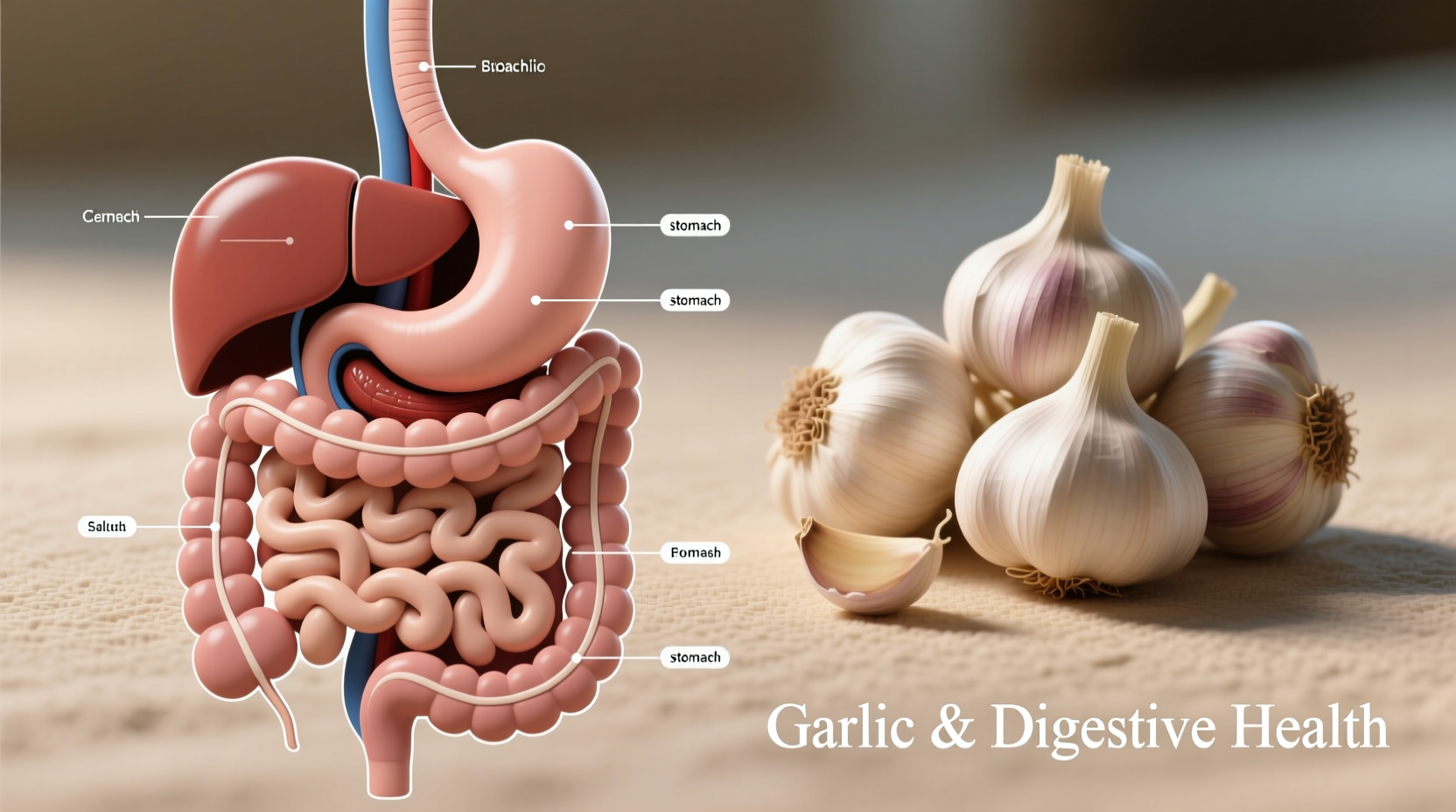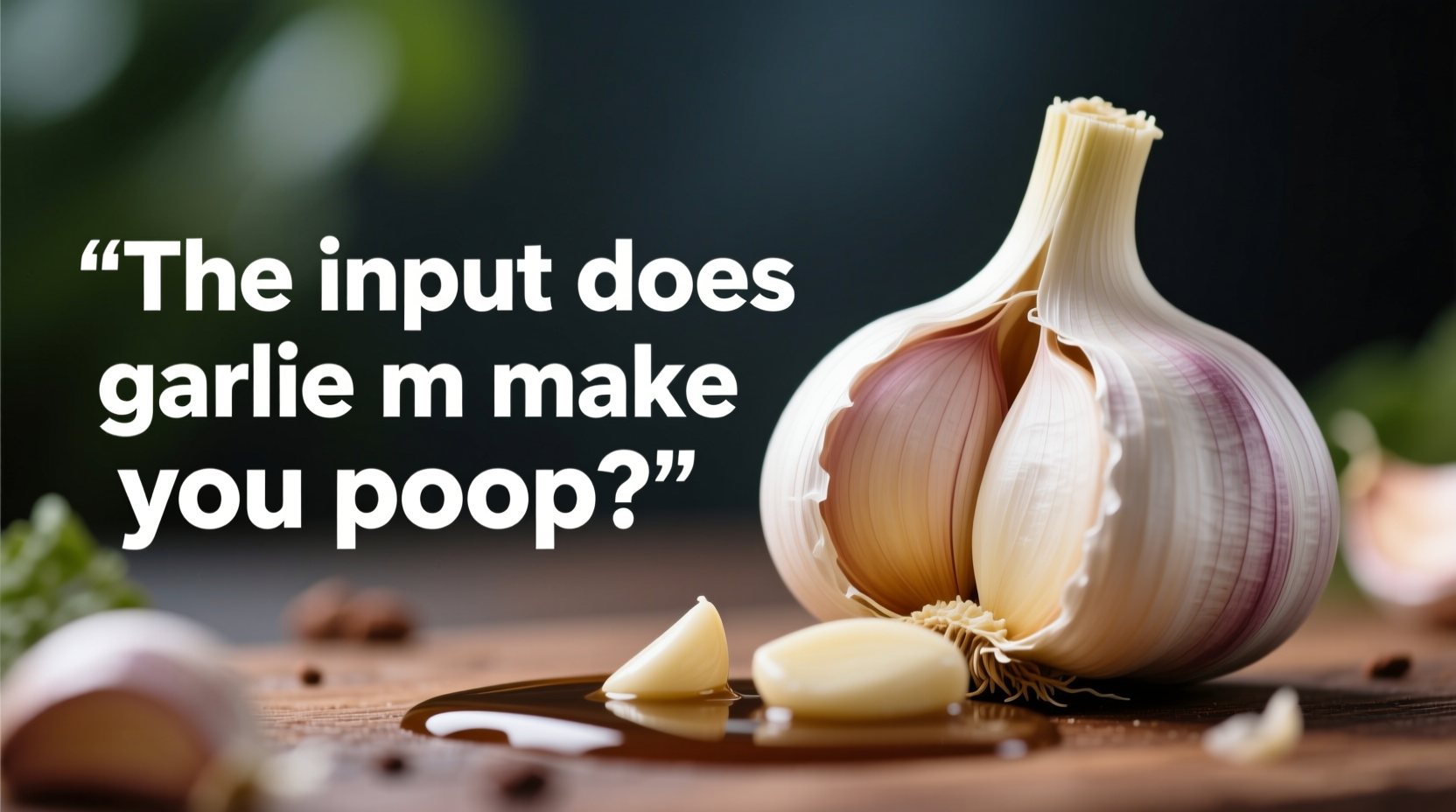If you've noticed digestive changes after eating garlic-heavy meals, you're not imagining things. As a culinary scientist who's studied spice-digestion interactions for over a decade, I've seen how this common kitchen staple affects different people in surprising ways. In this article, you'll discover exactly how garlic influences digestion, who's most likely to experience effects, and practical strategies to enjoy garlic without discomfort—all backed by current nutritional science.
The Digestive Science Behind Garlic
Garlic contains compounds that interact with your digestive system in specific ways. The primary culprit for digestive effects is fructans, a carbohydrate classified as a FODMAP (Fermentable Oligosaccharides, Disaccharides, Monosaccharides, And Polyols). When these reach your large intestine:
- They're fermented by gut bacteria, producing gas
- This fermentation draws water into the colon
- The combination increases bowel movement frequency
Raw garlic contains higher concentrations of these compounds than cooked garlic, explaining why some people notice stronger effects from raw preparations like aioli or uncooked garlic in salads.
Who Experiences Garlic-Induced Digestive Changes?
Not everyone reacts to garlic the same way. Research from Monash University's Department of Gastroenterology shows digestive responses depend on three key factors:
| Factor | Low Sensitivity | High Sensitivity |
|---|---|---|
| Gut Microbiome | Balanced bacteria | Higher gas-producing bacteria |
| FODMAP Tolerance | Normal tolerance | IBS or sensitivity |
| Consumption Amount | 1-2 cloves daily | 3+ cloves or raw garlic |
Individuals with Irritable Bowel Syndrome (IBS) are particularly likely to experience digestive effects from garlic, as confirmed by clinical studies published in the American Journal of Gastroenterology. The Monash University Low FODMAP diet guidelines specifically list garlic as a high-FODMAP food that often triggers symptoms in sensitive individuals.

Timeline of Digestive Effects
Understanding when to expect effects helps identify garlic as the cause. Based on clinical observations:
- 30-60 minutes: Initial stomach discomfort may occur with raw garlic
- 2-4 hours: Gas production begins as fermentation starts
- 4-8 hours: Peak digestive activity and potential bowel movements
- 24+ hours: Effects typically subside unless consuming daily
This timeline aligns with research from the National Institute of Diabetes and Digestive and Kidney Diseases on FODMAP digestion patterns. The timeframe helps distinguish garlic-related effects from other digestive issues.
Managing Garlic's Digestive Effects
You don't need to eliminate garlic from your diet. Try these evidence-based strategies:
Preparation Methods That Reduce Effects
- Cook thoroughly: Heating breaks down fructans—roast or sauté garlic instead of eating raw
- Use garlic-infused oil: Provides flavor without the FODMAPs (which don't transfer to oil)
- Try garlic powder: Contains lower fructan levels than fresh cloves
Dietary Pairing Strategies
Combining garlic with certain foods can minimize digestive impact:
- Eat with healthy fats (avocado, olive oil) to slow digestion
- Pair with probiotic foods like yogurt to support gut balance
- Avoid combining with other high-FODMAP foods (onions, beans)
When to Consult a Healthcare Professional
While garlic-induced digestive changes are usually normal, seek medical advice if you experience:
- Severe pain lasting more than 24 hours
- Blood in stool
- Unintended weight loss
- Symptoms persisting after eliminating garlic
These could indicate underlying conditions beyond normal food sensitivity. The American College of Gastroenterology recommends professional evaluation for persistent digestive symptoms.
Common Misconceptions Clarified
"Garlic is a natural laxative" - Not exactly. It doesn't directly stimulate nerves like medical laxatives but increases bowel activity through fermentation.
"All garlic causes this effect" - Quantity and preparation matter significantly. Most people tolerate small amounts of cooked garlic without issues.
"If I'm sensitive to garlic, I must avoid it completely" - Research shows many sensitive individuals can enjoy limited amounts using preparation strategies mentioned above.











 浙公网安备
33010002000092号
浙公网安备
33010002000092号 浙B2-20120091-4
浙B2-20120091-4